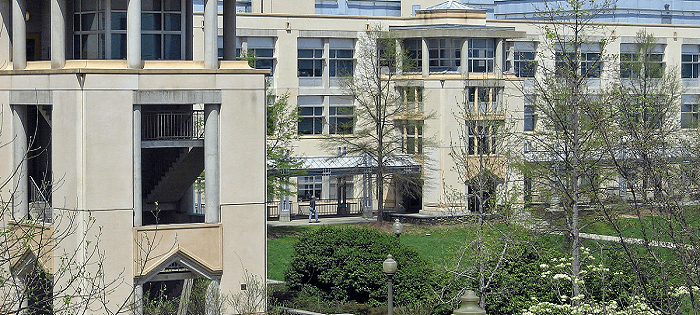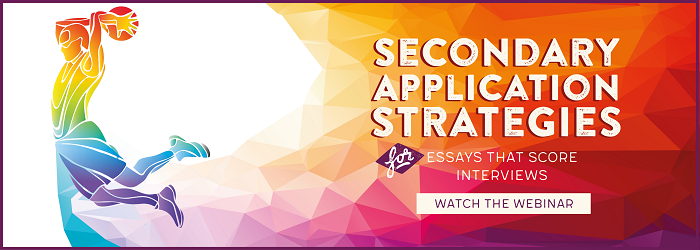
Duke University’s Medical School is ranked 8th among its peers with a focus on interdisciplinary learning and inclusiveness among the student body. They aim to use medical research to solve global problems. Duke emphasizes diversity, inclusion, and attention to community health problems. The secondary application questions ask you to consider your role as a physician in global and local communities.
Duke University’s 2016 Secondary Application Essay Questions:
1. Describe the community in which you were nurtured or spent the majority of your early development with respect to its demographics. What core values did you receive and how will these translate into the contributions that you hope to make to your community as a medical student and to your career in medicine? What improvements do you think might make the described community better?
This question asks you to look at your own experience and examine your values. Make a list of the communities to which you belong and what you have learned from each one. Then, ask yourself how these lessons apply to your motivation to pursue medicine. Choose about 2 or 3 of the strongest values to focus on in your essay. Finally, step back and look at the big picture – how does your community fit into the larger scope of the world? What can you say about your own community with some objective perspective and informed outlook?
2. Describe a situation where you have chosen to advocate for someone who is different from yourself. What does advocacy mean to you and how has your advocacy developed? How do you see it linked to your role as a physician/leader? What risks, if any, might be associated with your choice to be an advocate?
For this prompt, make a list of times you have either helped someone different from you express his or her needs or obtain a needed service or acknowledgement. The prompt asks for an individual example, but you can also think about an individual you have worked with who represents a broader group of people. This question is asking you to think about your role as a physician-advocate, someone who will represent her patient in the quest to obtain fair and adequate healthcare. The question also addresses Duke’s emphasis on the physician as a member of the community with a duty to improve care for all.
3. What has been your most humbling experience and how will that experience affect your interactions with your peers and patients?
This prompt requires that you address an experience where things did not go as planned. You should give an example honestly while avoiding any response that implies you did something illegal or immoral. Your answer should emphasize what you did after this experience – how did you recover? What lesson did you learn? What would you do differently next time?
4. Describe an experience when you were confronted with an individual or group whose values differ from yours. How did you resolve the conflict/ challenge? Describe at least one outcome that the experience created.
This essay prompt is asking you to give a problem-solution response: what was a challenge you faced and how did you resolve it? In terms of the problem, it’s important to pick something that has some actual stakes either for you or someone else. Ensure that you spend most of the essay explaining how you solved the problem, and be specific. Who did you talk to? What did you say? What approach did you try? Did you try several approaches? As for the outcome, it should relate in some way to your narrative of personal growth and journey towards becoming a physician.
5. Describe a situation where you failed. What did you learn from the experience? Describe at least one functional impact of the experience.
Here, the Adcom wants to know how you accept failure and what you do about it. The failure can be personal or professional (avoid anything immoral or cruel, of course). When you are responding to this kind of prompt, don’t shy away from admitting you have failed or made mistakes, and never write that you haven’t failed. The most important part of the essay is what you learned. Here, avoid trite lessons, like “I learned how to be persistent,” and, instead, really think about the incident in terms of emotional and intellectual growth. All the better if you can briefly conclude the essay with a similar situation where you were able to apply the lesson you learned. These types of questions are trying to get at your resilience and maturity as a person.
***Disclaimer: Information is subject to change. Please check with individual programs to verify the essay questions, instructions and deadlines.***

By Jessica Pishko , an Accepted medical school admissions consultant. Jessica Pishko graduated with a J.D. from Harvard Law School and received an M.F.A. from Columbia University. She spent two years guiding students through the medical school application process at Columbia’s Postbac Program and teaches writing at all levels. Want Jessica to help you get accepted? Click here to get in touch!
Related Resources:
• Put the Med School Application Puzzle Together: Advice from C. Foote
• Successful Medical School Secondary Application Strategies
• UGH! THOSE @!#$* WORD LIMITS!!!
This article originally appeared on blog.accepted.com.• Successful Medical School Secondary Application Strategies
• UGH! THOSE @!#$* WORD LIMITS!!!
Applying to medical school? The talented folks at Accepted have helped hundreds of applicants like you get accepted to their dream programs. Whether you are figuring out where apply, working on your AMCAS application, working on secondary essays, or prepping for your interviews, we are just a call (or click) away.
Contact us, and get matched up with the consultant who will help you get accepted!
